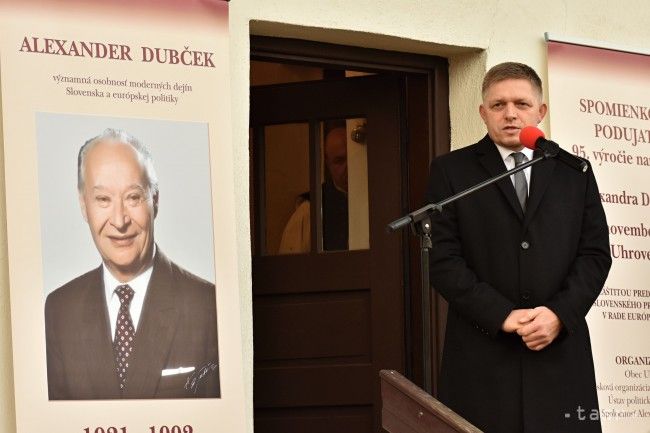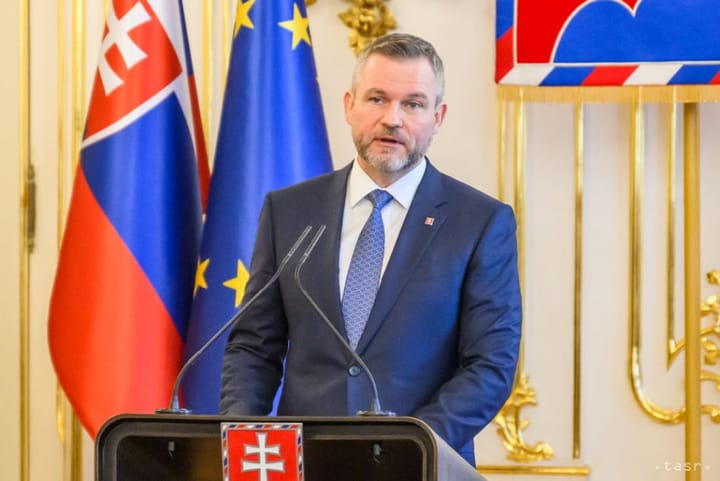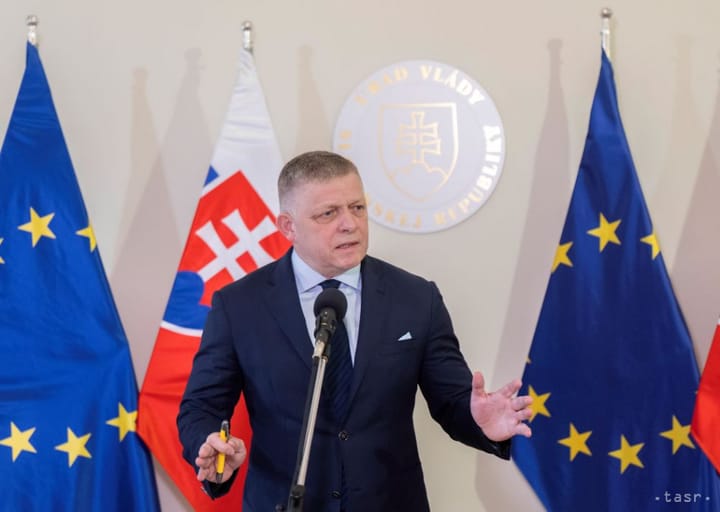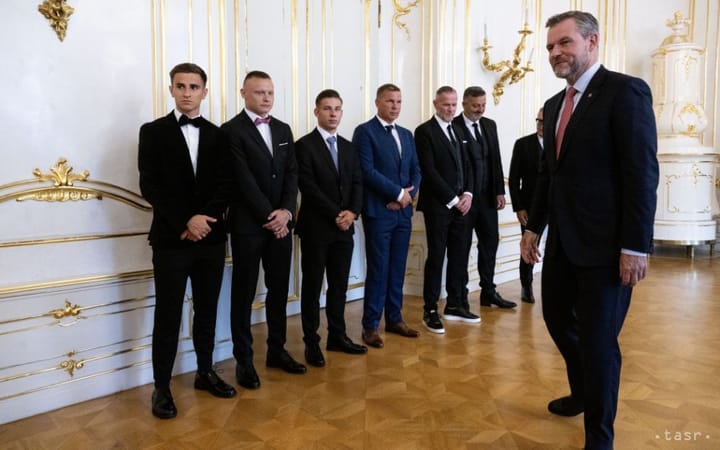Fico: Dubcek Was Global Giant in 1960s and 1970s

Uhrovec, November 26 (TASR) – Alexander Dubcek was like a book cited by many, but few have actually read it, Prime Minister Robert Fico said on Saturday in a speech at a commemorative event marking the 95th anniversary of the 1968 Prague Spring leader’s birth in Uhrovec (Trencin region).
“Perhaps it’s our duty to recall more how he lived and what he did, thereby providing impulse from his extraordinarily active life to our people in the middle age and the young,” said Fico, describing the Slovak/Czechoslovak reformist communist leader as a global political giant in the 1960s and 1970s.
“I think that his idea of politics with a human face – in 1968 actually socialism with a human face – was awesome. It represented an incredible alternative to a tough capitalism, and that’s why it was so popular. I’d be very pleased to see inspiration of this idea being carried over into the present times, with politics in Slovakia also getting a human face,” said Fico.
According to Fico, it’s necessary to pay more attention to the social dimension of market economy, with Dubcek’s ideas on the matter being “immensely important even for the current global future”.
The commemorative event was also attended by Dubcek’s sons Milan and Pavol.
“I was active in diplomacy and, really, when I told people from various corners of the world that Alexander Dubcek was my father, they went into ecstasy,” said Milan Dubcek.
Alexander Dubcek’s stint as the Communist Party of Czechoslovakia secretary-general, effectively the country’s top political leader, was rather brief (1968-69). His reform movement known as the Prague Spring was crushed by the invasion of five Warsaw Pact countries in August 1968. He was eventually forced to resign in the spring of 1969, after what became known as the Czechoslovak Hockey Riots – a series of protests following two defeats of the seemingly invincible Soviet ice hockey team by Czechoslovakia at the world championships in Sweden.
After the Velvet Revolution of 1989, Dubcek became chairman of the federal Czechoslovak parliament. He died on November 7, 1992, as a result of injuries he suffered in a car crash two months earlier.



